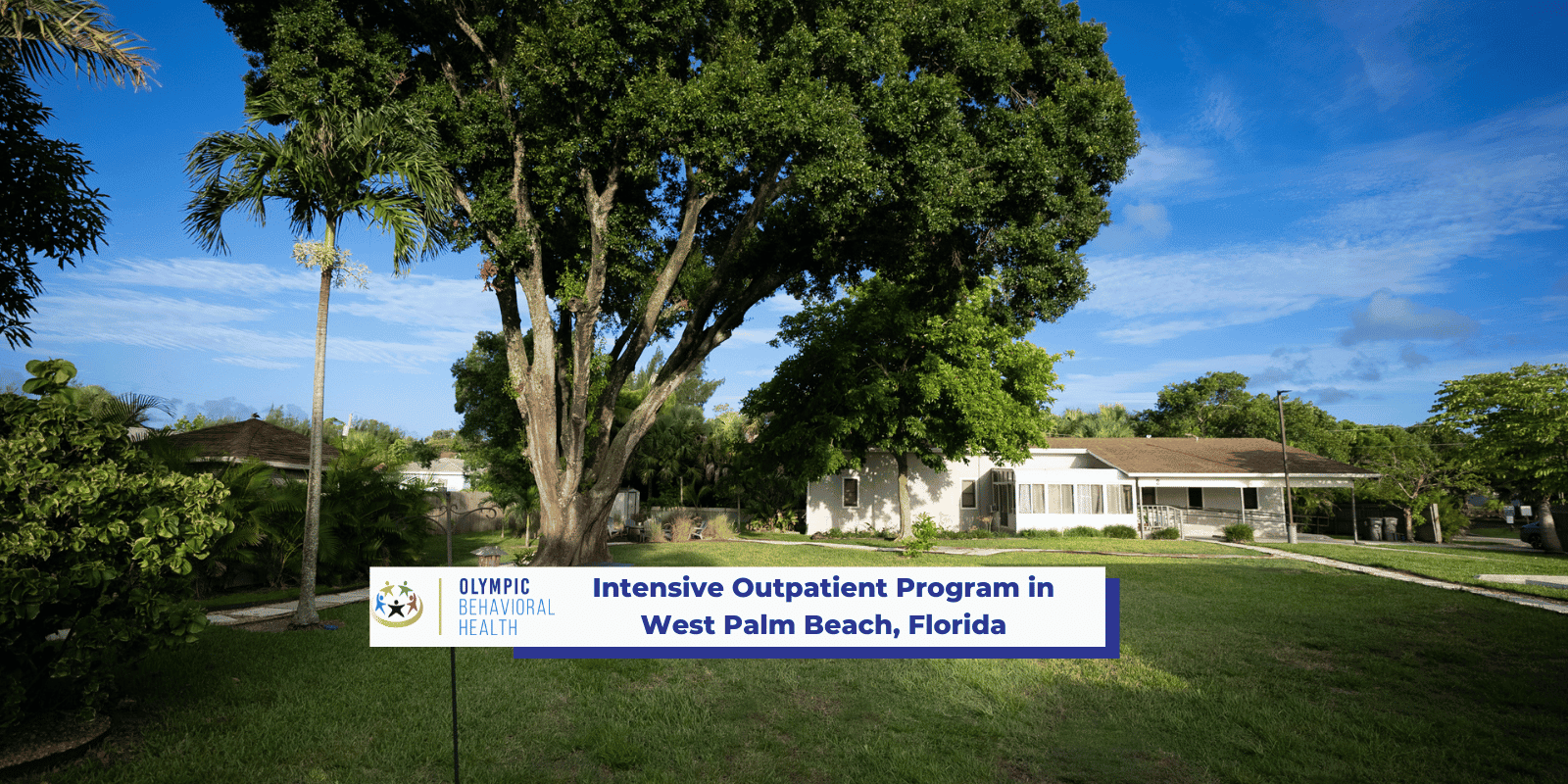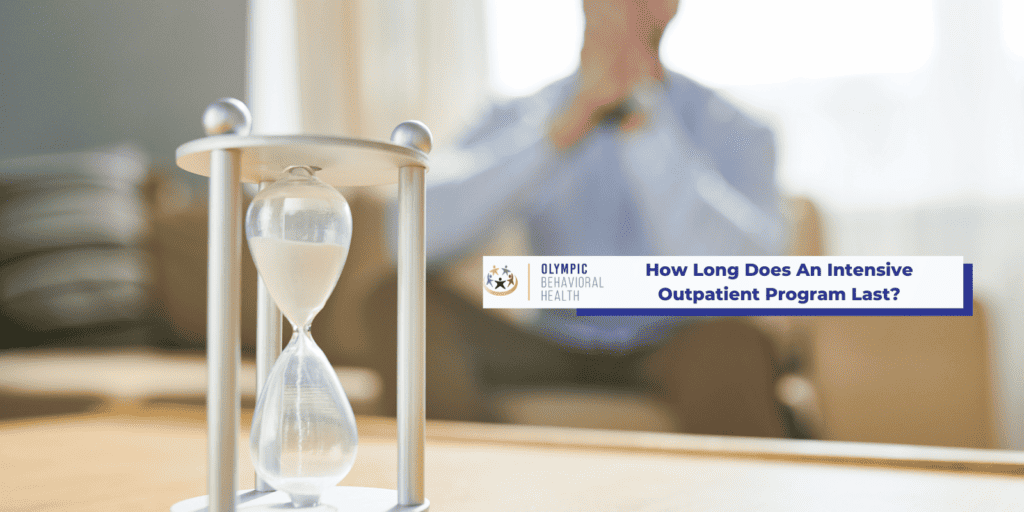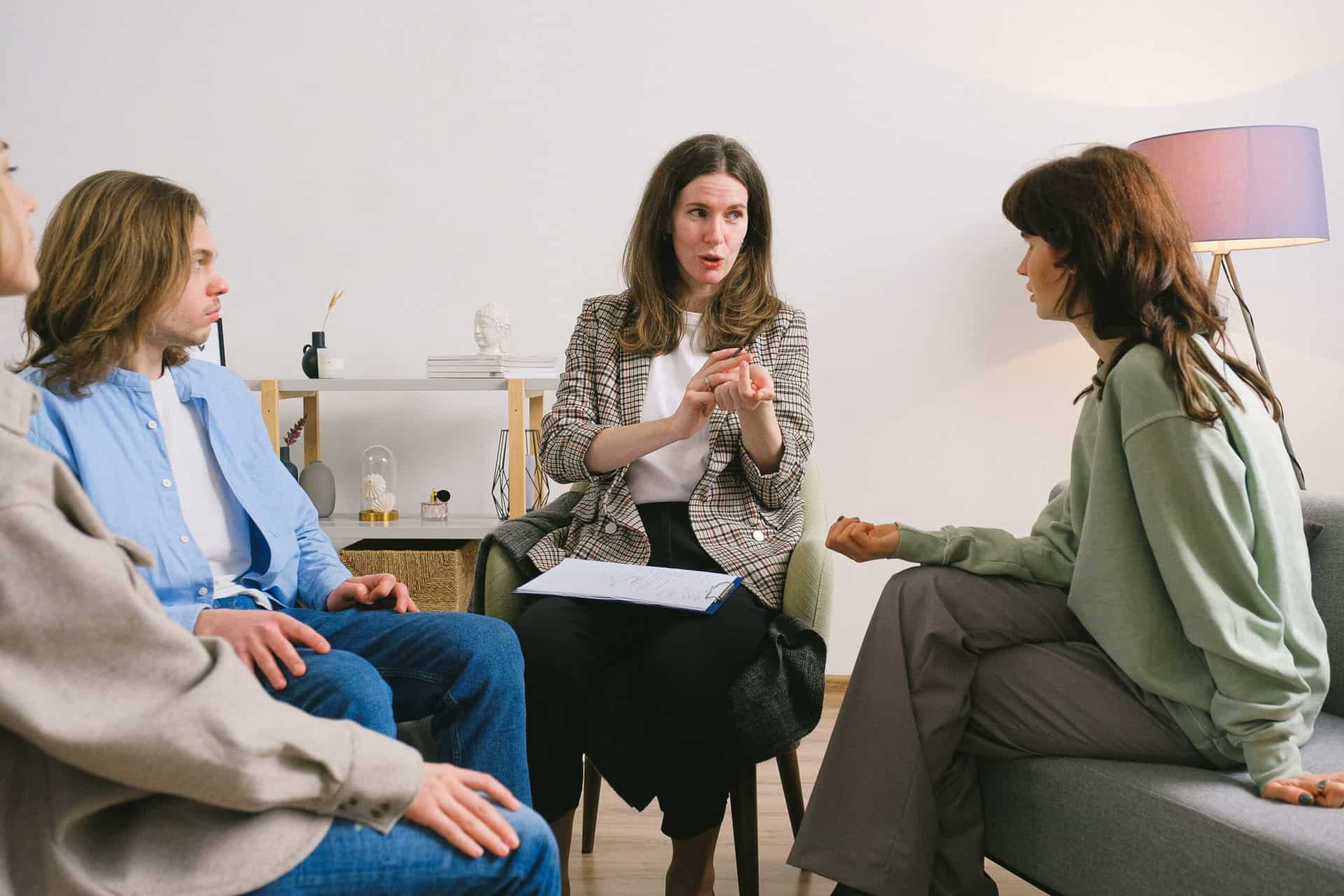If you are struggling with mental health, substance use disorder or both, The Olympic Behavioral Health can help you on your recovery journey. Intensive outpatient programming (IOP) is a supportive community environment with flixible options that account for work and home life. Our commitment to patient care is unwavering and provides and individualized experience since everyone is different and struggling with different issues.
This Intensive Outpatient Program addresses addiction head on while also allowing patients to continue with their lives and routines. IOP is a good fit for patients that don’t require the intensive care of a residential inpatient program.

What Is an Intensive Outpatient Program?
An Intensive Outpatient Program (IOP) is a form of addiction treatment that allows individuals to receive focused and comprehensive therapy while living at home and maintaining their daily responsibilities. Typically, IOPs involve several hours of treatment per week, which may include individual counseling, group therapy, educational sessions, and support for managing substance use. This program is particularly suitable for those who require a significant level of care but do not need 24-hour supervision, offering a balance between intensive treatment and everyday life.
How Does IOP Work?
The Intensive Outpatient Program (IOP) at Olympic Behavioral Health functions as a comprehensive, step-down care level for individuals transitioning from higher levels of addiction and mental health treatment, or as a standalone option for those needing more than traditional outpatient therapy. Here’s how it works:
- Structured yet Flexible Schedule: IOP provides a structured treatment environment, typically involving multiple sessions per week. These sessions can include individual therapy, group therapy, and educational workshops, all scheduled to accommodate your daily work and family commitments.
- Personalized Treatment Plans: Upon entering the IOP, clients receive a personalized treatment plan developed to address their specific mental health, addiction, or co-occurring disorders. This plan includes a combination of evidence-based therapies such as Cognitive Behavioral Therapy (CBT), Dialectical Behavior Therapy (DBT), and medication management.
- Holistic Approach to Wellness: Olympic Behavioral Health’s IOP distinguishes itself with its holistic approach. This includes incorporating complementary therapies like yoga, mindfulness, art, and music therapy, ensuring that clients receive comprehensive care that goes beyond traditional treatment methods.
- Emphasis on Physical Health: Recognizing the connection between physical and mental health, our IOP program encourages clients to engage in regular exercise and outdoor activities. This holistic view is essential for fostering overall well-being and long-term recovery.
- Transition and Continuity of Care: For those stepping down from inpatient programs, IOP offers a supportive transition back into everyday life, ensuring continuity of care and support. For others, it provides an intensive treatment level without the need for full residential care.
By balancing structured therapy with flexibility, Olympic Behavioral Health’s IOP serves as an effective, adaptable treatment option, catering to the unique needs of each individual while supporting their journey towards lasting recovery.
What to expect in an Intensive Outpatient Program in Florida?
Knowing more about intensive outpatient programs in Florida can help you decide the best option for your addiction treatment. At Olympic Behavioral Health, we create personalized addiction treatment programs for everyone in our care. Some of the services and therapies we offer include:
- Behavioral therapies like cognitive-behavioral therapy (CBT) and dialectical behavior therapy (DBT). They help you move away from behaviors that interfere with your recovery replacing them with healthy behaviors.
- Individual therapy in West Palm Beach, FL, such as psychotherapy can get to the root of your addiction. It’ll help you to manage mental health conditions.
- Medications to help mitigate withdrawal symptoms and cravings and treat mental health conditions.
- Group therapy provides opportunities to bond with others in similar situations and share your struggles and accomplishments as you navigate recovery.
- Family therapy to heal the damage caused by addiction.
- Complementary therapies include acupuncture, yoga, music, and art therapy. These can enhance treatment and teach healthy mind/body practices.
How Long Does An Intensive Outpatient Progran Last?
The time commitment of an intensive outpatient program in South Florida falls between partial hospitalization and outpatient treatment. You will likely attend three to five weekly sessions for about two to three hours each day. Over time, you can scale back to standard outpatient addiction treatment for continued support with a minimal time commitment.

Taking the Next Step with Olympic Behavioral Health’s Intensive Outpatient Program
At Olympic Behavioral Health, we are committed to providing a range of treatment options tailored to your unique path towards recovery. Our facility in West Palm Beach, FL, specializes in comprehensive addiction treatment, including partial hospitalization, intensive outpatient (IOP), and standard outpatient programs, ensuring a fit for every individual’s needs. Recognizing the critical role of detoxification in recovery, we also collaborate with trusted Florida drug and alcohol detox partners to facilitate a smooth transition into outpatient care.
Our Intensive Outpatient Program stands out as a flexible yet robust treatment option, allowing you to integrate recovery seamlessly into your daily life. If you’re ready to embark on a transformative journey towards wellness, we invite you to explore the possibilities with our IOP at our Drug Rehab Center in West Palm Beach, FL. Don’t hesitate to take this vital step; call us at (561) 272-0800 to discover how our IOP can support your journey to a healthier, substance-free life.




